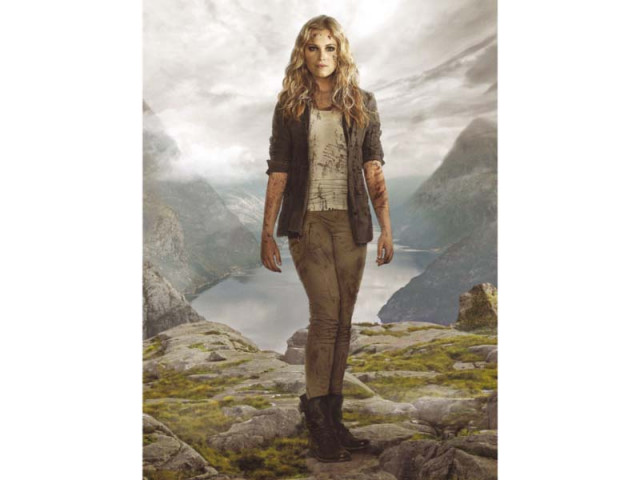Film review: The 100 - Future tense
A compelling TV show explores questions of morality in a post-apocalyptic world

A compelling TV show explores questions of morality in a post-apocalyptic world.
It’s easy to dismiss The 100 as simply another show about beautiful teenagers falling in love, with the dystopian setting as a backdrop to their usual drama. But from the very beginning, The 100 sets itself apart by its commitment to its premise. It is set 97 years after a nuclear war destroyed civilisation on earth and a draconian space station called the Ark is housing humanity’s lone survivors. But resources on the Ark are running out and in order to find out whether Earth is finally liveable, the Ark’s government send a group of teenage delinquents down to Earth to test the waters.
At the helm of the group are Clarke (Eliza Taylor) — whose mother is one of the leaders back on the Ark and so is a privileged member of its society — and Bellamy (Bob Morley), who belongs to a more subservient class in the Ark. Being situated at different sections of society has resulted in them having clashing views about leadership and governance, and watching them negotiate that and grow into their positions as leaders is fascinating to watch. Another thing the show gets right is its characters and their development, especially the female characters. Not only are these female characters complex and multidimensional, they drive the narrative of the show.
Moral ambiguity is baked into the very premise of the show: how ethical is it to send teenagers to what is presumably their deaths, in order to find a solution for the rest of the surviving people? Is it possible to do the right thing while also being pragmatic and proactive, and how do these two choices affect the kind of society you are trying to build? The show continues asking these questions as it progresses — questions about morality, war, the consequences of violence and the cost of survival. Sure, other shows explore similar themes, but what sets The 100 apart is that its characters are mostly young people trying to figure things out, and as a result, they tend to grapple with moral complexities and grey areas in greater depth and through them, the show gives itself more room to explore these themes with greater nuance.
What is also refreshing about the show is its portrayal of violence. The 100 has its fair share of bloodshed, but it is very careful in never glorying in it, always framing violence as tragic and horrifying. The show takes the time to depict how violence takes a toll on the characters, and how that affects their subsequent actions. The 100 is also not afraid to make tough calls — there are several points during its two seasons (the third airs in 2016) where lesser shows would take the easy way out to have cleaner resolution, but the producers here are more interested in exploring messy consequences, which makes for much more compelling television.

Published in The Express Tribune, Sunday Magazine, September 20th, 2015.



















COMMENTS
Comments are moderated and generally will be posted if they are on-topic and not abusive.
For more information, please see our Comments FAQ